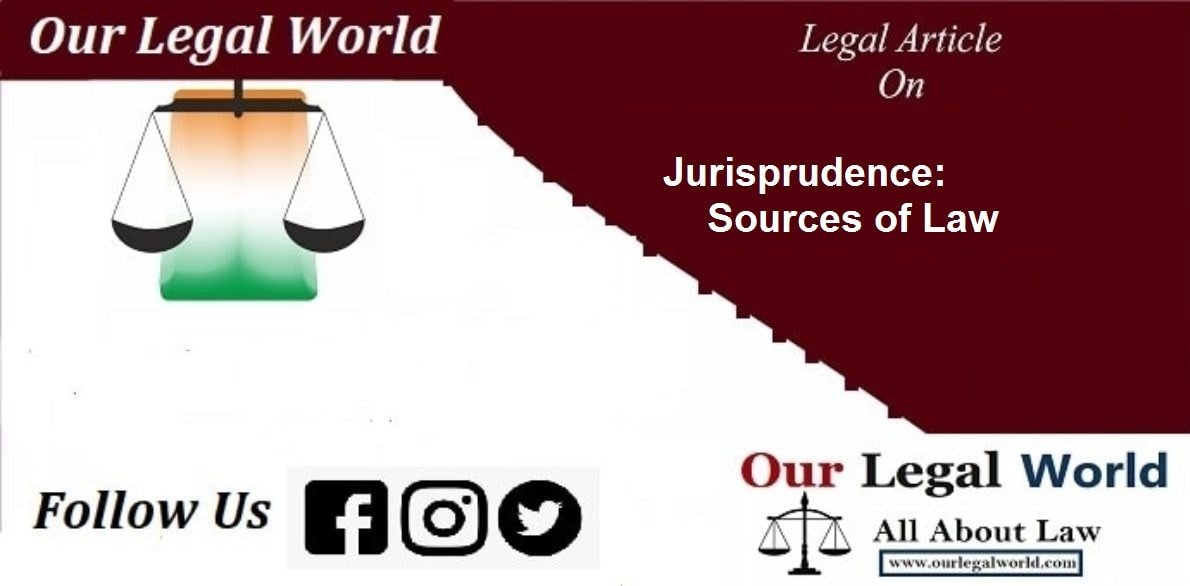Immanuel Kant Theory of Jurisprudence
INTRODUCTION
Kant was born in 1724 in the Prussian city of Kongsberg. Immanuel Kant synthesized early modern rationalism and empiricism. The doctrine of “Transcendental idealism”, which emphasizes a distinction between what we can experience that is natural observable world and what we cannot that is “supersensible” objects such as god and the soul. Kant argued that we can only have knowledge of things we can experience. According in answer to the question “What can I know?” Kant replied that we know the natural, observable world, but we cannot, however, have answers to many of the deepest questions of metaphysics.
Kant Universal ethical principle states that one should always respect the humanity in others and that one should only act in accordance with the rules that could hold for everyone.
Kant argued that moral law is a truth of reason, and hence all rational creatures are bound by the same moral laws. Thus in answer to the question “what should I do”? Kant replied that we should act rationally, in accordance with the universal moral law. Kant argued that his ethical theory requires belief in free will, God And the immorality of the soul. Although we cannot have knowledge of these things, reflection on the moral laws leds to a justified belief in them, which amounts to kind rational faith.
Kant self that we may hope that our souls are immortal and there are really is a god who designed the world in accordance with the principles of justice.
Kant made a lasting contribution to nearly all areas of philosophy. His aesthetic theory remains influential among art critics. His theory of knowledge is required realising for many branches of analytic philosophy.
METAPHYSICS AND EPISTEMOLOGY
The most important element of Kant mature metaphysics and epistemology is his doctrine of Transcendental idealism which received it’s fullest discussion in critique of pure Reason. Transcendental idealism is the thesis that the empirical world that we experience that is the phenomenal world of appearance is to be distinguished from the world of things as they are in themselves.
The most significant aspect of this distinction is that while the empirical world exists in space and time, things in themselves are neither spatial not temporal. Transcendental idealism has wide-ranging consequences.
On the positive side Kant takes transcendental idealism to entail an “empirical idealism”, according to which humans have direct optimistic access to the natural, physical world and can even have a priori cognition of basic features of all possible experiencable objects. On the negative side Kant argues that we cannot have knowledge of things in themselves, Further, since traditional metaphysics deals with things in themselves answers to the question of traditional metaphysics for example regarding God or free will can never be answered by human minds.
Kant first purely philosophical work was the New Education of the First Principles of Metaphysical cognition. The first parts of this present criticism and revisions of the Wolffian understanding of the basic principles of metaphysics especially the principles of metaphysics, especially the principles of identity ( whatever is, is and whatever is not, is not) and of sufficient reason (nothing is true without a reason why it is true).
In physical Manadology. Kant attempts to provide a metaphysical account of the basic constitution of material substances in terms of “ monads”. Leibniz and Wolff had geld that monads are simple aromatic substances that constitute matter. Kant follows Wolff in rejecting Leibniz claim that monads are mind-like and they don’t interact with each other.
Thirty years later in the metaphysical foundation of natural science, Kant would develop a theory that matter must be understood in terms of interacting with attractive and repulsive forces. To find publication of Kant’s pre-critical period was on the form and principles of sensible and the intelligible world, also referred to as the inaugural dissertation since it marked Kant appointment as Konigsberg’s professor of logic and metaphysics.
IMMANUEL KANT’S ETHICAL THEORY
Immanuel Kant created the most prominent deontological theory of morality. His theory concentrates on duty rather than emotional impulse or final good. Example – It would be wrong to bet a lie in order to save a friend from punishment. It asserts that truly moral activities are motivated by moral activities are motivated by a sense of duty rather than self-interest or utility. It implies that one should treat it as an end and not merely a means.
Kant differentiated between, action done in accordance with duty and action done for sake of duty. For Kant goodwill ( the will to do the right things) was the most important, Th will do the right things is self-determined and self-legislative. Thus he believed that when a person is bound by his own will rather than the will of others, he is free. For Kant morality means acting in accordance with the categorical imperative. There are two types of imperative that are – Hypothetical and second is – categorical.
A hypothetical imperative is one that expresses a conditional command. The categorical imperative is the one that expresses an absolute command. Eg:- Do not cheat.
a) DUTY
- Some believe that the motivation of our actions is merely the seeking of pleasure (and avoidance of pain).
- Against this belief, Kant argues that if pleasure were the only thing that motivated our actions, then we would only have the instinct to guide us, as instinct suffices for obtaining pleasure (such as animals). (From Kant’s ‘Groundwork of a Metaphysics of Morals’)
- However, humans have reason above instinct, and this means that our motivations go beyond mere pleasure.
- So the function of reason is not pleasure or happiness, but to produce a will that is good in itself (not good for something else, such as happiness).
- Good will is manifested in acting for the sake of duty.
- One’s duty is to follow the Categorical Imperative as not doing so would mean that one acted for one’s own pleasure. This would mean that one is misusing reason – being irrational.
- One should therefore follow one’s duty even if it goes against one’s (pleasurable) desires and certainly not for the sake of desires (this includes ‘feel-good’ emotions like sympathy or compassion).
- If a person does a good deed at a time when he is fully occupied with his own troubles, it shows that he does it out of duty, not natural inclinations.
The Formula of the Law of Nature:
- Act as if the maxim of your action were to become through your will a universal law of nature.
I.e. we must ask whether, if our subjective maxim (i.e. thought for an action) were universally adopted, would it further a systematic harmony of purposes in the individual and in the human race. If not, the action would be immoral. - This formulation depends on a teleological view of nature – i.e. that everything has a purpose/telos. This is rejected by, say, post-Darwinists, for a mechanistic view of nature.
- This formulation is used by Kant as an argument as to why suicide is immoral: one would will that self-preservation were a law of nature (a purpose of life), not therefore its opposite, suicide.
b) Free Will
– For Kant, morality is only possible if free will exists.
– If free will did not exist, then we would not be free to choose which action to take. In which case we could not be held responsible (in a positive or negative way) for our actions (we would be like programmed robots).
– Free will is free intention.
This is one aspect of what decides whether an action is moral:
A shopkeeper gives back the right change because he thinks that is his duty. He is moral. A shopkeeper gives back the right change because he thinks the person will complain if he doesn’t. This is not moral.
This shows that mere consequences (as in utilitarianism) cannot really explain the morality of an action.
c) God and Morality
– Although morality leads to religion (we come to realise that God, immortality and free will are the three postulates of morality), morality cannot be derived from religion.
– We must reject the theological principle that to be moral is to obey the will of god, because we can only know that ‘God is good’ if we already know what goodness is, but if we know that, we cannot need god as the basis of knowing what goodness is.
CRITICISM
Kant wanted to make the table of judgments the key to all knowledge. In so doing, he was concerned with making a system and did not think of defining terms such as perception and conception, as well as reason, understanding, subject, object, and others.
Also Read: Theory Given By Oliver Wendell Holmes
Transcendental analytic.
Kant asserted that metaphysics is knowledge a priori, or before experience. As a result, he concluded that the source of metaphysics cannot be an inner or outer experience. Schopenhauer claimed that metaphysics must understand inner and outer experience in order to know the world and not empty forms. Kant did not prove that the material for knowing the world is outside of the experience of the world and merely in the forms of knowledge.
Concepts
Kant didn’t clearly explain concepts in general: Concepts of the understanding (common concepts and categories). Concepts of Reason (Ideas of God, Freedom, and Immortality). He divided reason into theoretical and practical, making practical reason the source of virtuous conduct.
Idealism
Kant altered his first edition to: Suppress the idealistic assertion that objects are conditioned by the knowing subject; Object-in-itself and thing-in-itself. According to Schopenhauer, there is a difference between an object-in-itself and a thing-in-itself. There is no object-in-itself. An object is always an object for a subject. An object is really a representation of an object. On the other hand, a thing-in-itself, for Kant, is completely unknown. It cannot be spoken of at all without employing categories (pure concepts of the understanding). A thing-in-itself is that which appears to an observer when the observer experiences a representation.
Ideas of reason
Kant called God, soul, and total world (cosmos) Ideas of Reason. In doing so, he appropriated Plato’s word “Idea” and ambiguously changed its settled meaning. Plato’s Ideas are models or standards from which copies are generated. The copies are visible objects of perception. Kant’s Ideas of Reason are not accessible to knowledge of perception. They are barely understandable through abstract knowledge of concepts.
Ethics
Kant claimed that virtue results from practical reason. Schopenhauer claimed that, to the contrary, virtuous conduct has nothing to do with a rational life and may even be opposed to it, as with Machiavellian rational expediency.
Categorical Imperative
According to Schopenhauer, Kant’s Categorical Imperative: Redundantly repeats the ancient command: “don’t do to another what you don’t want done to you.”Is egoistic because its universality includes the person who both gives and obeys the command. Is cold and dead because it is to be followed without love, feeling, or inclination, but merely out of a sense of duty.
Power of Judgement
In the Critique of Pure Reason, Kant claimed that understanding was the ability to judge. The forms of judgments were said to be the basis of the categories and all philosophy. But in his Critique of Judgment, he called a new, different ability the faculty of judgment. That now resulted in four faculties: sensation, understanding, judging, and reason. Judgment was located between understanding and reason and contained elements of both.





